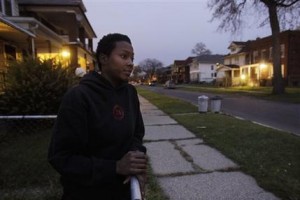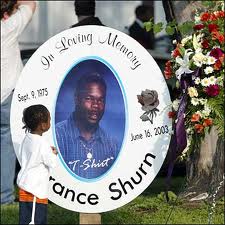VOD NEEDS DONATIONS NOW–LINKS IN STORIES
VOD WELCOMES NEW SUBMISSIONS!
If you want to be published on VOD, please submit your articles, etc. to diane_bukowski@hotmail.com. Call 313-825-6126 to alert us.-
Recent Posts
- 50 YEARS OF MASS INCARCERATION NOW COST U.S., STATES, PRISONERS & FAMILIES $445 BILLION/YR.
- DEATH OF IMAM JAMIL AL-AMIN/H.RAP BROWN REIGNITES DEMANDS FOR JUSTICE, RECOGNITION OF HIS HEROIC LIFE
- SENTINEL REPORT: KYM WORTHY, CIU’s, DPD, SADO LEAVE MASSES OF WRONGLY CONVICTED TO ROT AND DIE IN MDOC
- FREE WRONGLY CONVICTED LIFER DAVID MCKINNEY, CHARGE INKSTER COPS ANTHONY DELGRECO, OTHERS
- LET OUR BROTHERS GO! RICKY RIMMER, GREGORY ALLEN, DESHON STOKES! SAT. OCT. 11 @12 NOON MLK JR. HIGH
- WRONGLY CONVICTED, MICHEAL ‘MIKE D’ DEGRAFFINRIED FREED AFTER 26 YRS; NEW TRIAL HEARINGS OCT. 9, NOV. 11
- COUNCIL CANDIDATE JAMES HARRIS’ S.T.R.E.S.S. COP, DRUG DEALER DAD BUSTED BY FEDS; SPENT 20 YRS. IN PRISON
- WOMEN AT HURON VALLEY PRISON WIN FED. COURT RULING BLASTING HORRIFIC CONDITIONS, DENYING MDOC IMMUNITY
- FREE RICKY RIMMER! DETROIT MAYORAL CANDIDATE ATTY. TODD PERKINS MEETS WITH RR’S SUPPORTERS JUNE 8
- DONATE TO VOD BEFORE JUNETEENTH! KEEP STORIES OF CONVICTIONS BY CROOKED COPS, PROSECUTORS ON-LINE
- CEDRIC TOOKS HOME AFTER 47 YRS, RESENTENCED AS 18-YR. OLD JUVENILE, LEADS WAY FOR HUNDREDS MORE
- MICH. SUPREME COURT ORDERS RESENTENCINGS FOR LIFERS AGED 18, 19, 20, AFFECTING AT LEAST 830 IN MDOC
- WE REMEMBER AFENI SHAKUR JAN. 10, 1947 – MAY 2, 2016; “BLACK PANTHER PARTY HISTORY IS WOMEN’S HISTORY”
- PROF. PENNY GODBOLDO, DR. MARGARET BETTS SPONSOR “MEDITATION MOVEMENT & MEDICINE” SAT. MAR. 29 10A-2P
- MICH. SUPREME COURT TO RULE RE: LIFERS CONVICTED UNDER 21, OTHERS CHARGED WITH FELONY MURDER
- DUGGAN’S DECADES-LONG DETROIT DEMOLITION DERBY
- ATTEND FRIENDS OF RETURNING CITIZENS (F.O.R.C.) SUPPORT GROUP MEETINGS TUESDAYS 6 – 7:30 PM
- EXONEREE THELONIOUS SEARCY PACKS COURT; JUDGE DELAYS RE-TRIAL, DENIES TETHER REMOVAL PER NESSEL
- FREE DOUBLE R IN 2025! DETROIT PROTESTS FOR RICKY RIMMER FORCED ACTION, CASE GOING TO APPEALS COURT
- CHARGES DISMISSED VS. DEMETRIS ‘MEECH’ KNUCKLES EL, COUSIN JAN. 16, 2025; TONS OF SUPPORTERS SHOWED
- FIGHT THE POWER! JOIN THELONIOUS ‘SHAWN’ SEARCY IN COURT FRI. JAN. 10 VS. ‘INNOCENCE DENIER’ KYM WORTHY
- DONATE TO VOD IN 2025! HELP EXPOSE CRIMES OF COPS, PROSECUTORS, JUDGES WHO FRAMED 1,000’S IN MDOC
- GAYELON SPENCER, JR. FIGHTS MURDER 2 CONVICTION: COPS DESTROYED EVIDENCE, BIASED MEDIA COVERAGE
- WILLIE MERRIWEATHER MEMORIAL SAT. DECEMBER 14, 4PM: HERO WHO GAVE HIS LIFE TO SAVE OTHERS FROM PRISON
- DIRTY DETROIT COPS BEAT, MADE UP CONFESSIONS FROM ALTON HUBBARD, BROTHER IDOLTHUS, IN 2004 MURDERS
Monthly Archives
Links
- Al Jazeera news
- All of Us Or None, prisoners and former prisoners
- All-African People's Revolutionary Party
- American Tribune, the prison experience
- Black Agenda Report
- Black is Back Coalition
- Black List
- Block Report Radio
- Color Lines
- DBA Press
- Defend Freedom of the Press
- Detroit Parents with Special Ed Students
- Free Mumia Abu Jamal
- Free Mumia Abu Jamal news
- Gray Zone
- Hood Research
- Jamahiriya News Agency–Free Libya
- Kenny Snodgrass: You Tube
- Labor Notes
- Libya 360
- Mac Speaking: Leona McElvene YouTube site
- Maryanne Godboldo
- MI Emergency Ctte. v War & Injustice
- Michigan Welfare Rights Organization
- Monthly Review Online
- Nadir's Detroit music scene
- Photography is Not a Crime
- Press TV world news
- Prison Legal News
- Project B.A.I.T.
- Real News Network
- Russia Today
- San Francisco Bay View newspaper
- SCG News: World News, Politics and Analysis
- THE GRAYZONE
- We the People of Detroit
- Wikileaks
BUSES GOING TO LAWSUIT HEARING ON DETROIT CONSENT AGREEMENT JUNE 13; DOZENS PACK COUNCIL MEETING TO SUPPORT ACTION

- Phyllis Griffiths resds letter from “Free Detroit” in support of Krystal Crittendon’s lawsuit to City Council June 5, 2012.
Suit says state owes city $230.4 million, asks for “declaratory judgment, permanent injunctive relief” against agreement
Emergency hearing Wed. June 13, 10 AM before Ingham County Circuit Court Judge William Collette in Mason, MI; two buses scheduled to leave from Bethany Baptist Church at 8 a.m. June 13, 15122 W. Chicago. Be there at 7:30 a.m.
By Diane Bukowski
June 6, 2012
DETROIT – An initial hearing on an historic lawsuit challenging Detroit’s consent agreement with the state, which essentially handed over control of the world’s largest Black-majority city outside of Africa, is set for Wed. June 13 at 10 a.m. Ingham County Circuit Court Judge William Collette will preside as a representative of the State’s Court of Claims, in Mason, Michigan. (See map at end of story.)
 Rev. David Bullock has volunteered to send two busloads of lawsuit supporters to the hearing. The busloads will leave June 13 at 8 a.m..
Rev. David Bullock has volunteered to send two busloads of lawsuit supporters to the hearing. The busloads will leave June 13 at 8 a.m..
The lawsuit, #12-000066-MK, asks for “declaratory and injunctive relief” to permanently void the agreement, reached under provisions of Public Act 4. The city’s Corporation Counsel Krystal Crittendon and Law Department attorney James Noseda filed the suit June 1 on behalf of the City of Detroit.
Defendants are the State of Michigan, its Department of Treasury, and Andy Dillon in his capacity as State Treasurer.
“There is no valid contract between the parties because, on or after the date when the Contract [consent agreement] was made, the State was in default to the City,” Crittendon and Noseda say in the suit.
It says state and city statutes bar the agreement because the state owes a total of $230,427,205.99 to Detroit (see sidebar). Those debts, if paid, would eliminate the alleged need for $250 million in city budget cuts for 2013, save 2,566 jobs, and otherwise put the city in the black.
State Treasury Department apokesperson Terry Stanton responded in a statement, “”The claims in the city’s complaint against the Consent Agreement have no merit. The State is not in default to the City of Detroit.”
Judge Collette is the same judge who ruled that Financial Review Teams must be open to the public, along with another colleague in Ingham County Circuit Court. Their rulings were later overturned on appeal by the staet.
Dozens of Detroiters packed Council chambers and hallways for two and a half hours June 5, condemning the City Council “Fatal Five” who voted for the agreement, as well as council members who voted for the 2013 budget.
Midway, Councilwoman Saunteel Jenkins, one of the Five, haughtily led her entire staff out of the room, angry because Tina Person, the “East-Side Lady,” had challenged her proposed reduction of public TV airing of Council sessions. Charles Pugh, Gary Brown, Kenneth Cockrel, Jr. and James Tate are the other four who voted for the consent agreement.
“Charles Pugh, you said during hearings on the consent agreement that we will still get our city service,” Valerie Burris said. “That was a lie. Our neighborhood’s garbage pick-up was three days late, and there are no streetlights working on Outer Drive. You five on the Council voted yes on an agreement you didn’t understand. You don’t care about the citizens. It’s going to be up to us to organize ourselves to resist this decree.”
Bing has already announced he plans to turn off 42.000 street lights in the city. The consent agreement calls for privatization of both the Public Lighting and Transportation Departments. The Council, by a unanimous vote on June 1, reduced Bing’s recommendations for general fund support for D-DOT from $52.3 million to $40 million, calling D-DOT “unsustainable.”
Former City Charter Commissioner and long-time attorney Rosemary Robinson told Council members, “You have effectively destroyed representative government in this city. We are organized and being awakened. You have given away the city’s assets, sold us out to Lansing. WE DO NOT CONSENT!”
Sandra Hines told the Council, “We have already lost control of the Detroit Public Schools, but we are not about to consent to losing Detroit. The consent agreement is illegal, it violates the Headlee Amendment and the 14th Amendment to the Constitution. The city’s power was not taken–you gave it away! You have no respect for the people. We are going to do everything we can to get you indicted.”
Tyrone Travis declared, “We’re in a fight against violent people, because you are bringing death to our community.”
Many members of the audience held up signs declaring “NO CONSENT!” as Robinson and others spoke.
“Free Detroit-No Consent,” a group of prominent citizens led by Robinson, presented a letter supporting Crittendon’s action to the Council. It also denounces the Council vote to approve the budget, saying it was based on an “illegally authorized fiscal stability agreement.”
The Council has not yet voted to appoint its two members to the nine-member Financial Advisory Board that is part of the agreement, which requires the Board to approve city budgets.
The letter asks the Board of Ethics to investigate the officials involved, “initiate forfeiture proceedings and take all necessary and sanctioned action including and not limited to judicial prosecution.”
Many of those who spoke denounced the pending shutdowns of the city’s Departments of Health and Wellness Promotion (DHWP), Human Services (D-DHS), and Workforce Stability Development under the new budget. Those departments are primarily funded by federal grants and cost the city little.
The Council voted unanimously June 1 to temporarily restore partial funding to these departments pending their transfer to private entities, a compromise with Bing’s recommendation that funding be immediately cut.
“How does a human being get out of the business of helping other human beings?” asked Brenda Hurt, a signer of the letter and a DHS worker. “You are giving away funds that the federal government has granted to the people of Detroit, and throwing us workers out in the street.”
Deena Johnson said the dismantling of D-DHS is already taking place.

Councilmen Gary Brown, who pushed for budget vote, and Charles Pugh, who got angry listening to comments June 5, 2012.
“They are taking Human Services out of the Six Mile Water Board office,” she said. “They already took our offices on Grandy. What about Detroiters—where can we go? We pay higher car insurance, light and gas bills. I expect the City Council to keep Human Services open. We want this to be a public service, not a private agency. Help us.”
D-DHS services include prevention of foreclosures, evictions and utility shut-offs, provision of food, clothing, day-care and transportation, and funding to non-profits like Young Detroit Builders. It also ran the city’s home weatherization program, which was turned over to WMCAA April 1, with hundreds of workers and contractors left unpaid, and work on homes unfinished.
The city’s Head Start Program, which D-DHS coordinates through contractors, receives $55 million in federal funding which is being transitioned.
“This means grant-funded programs are being privatized and will not be subject to City Council approval,” said Cecily McClellan, Vice-President of the Association of Professional and Technical Employees (APTE) and a member of Free Detroit. “Civil service requirements will not apply. This is going on across the nation.”
Susan Glaser, a member of the city’s Pension Board, said, “Once others find out the city is not going to be providing these services, private agencies will be scampering to get tens of millions of dollars in grant awards. I started working for the city during the years of the Fight Against Poverty, but poverty has not ended, the only thing that has ended is the fight. I would never have imagined then what is happening now. “
She said the city’s pension system is now 90 percent funded and gaining. Greg Murray, President of the Senior Accountants, Analysts and Appraisers Association (SAAA), warned that the cuts may be the first step in dismantling the pension system.
“Has anyone recognized the impact the lay-offs of 3,000 employees will have on the pension fund?” he asked. “This is a long-term plan to destabilize the pension fund so it can go to an outside entity like the Michigan Employees Retirement System (MERS).”
Bing unsuccessfully tried to give the city’s two pension systems, worth over $6 billion, to MERS two years ago. The Lansing-based MERS is a private organization which ousts member systems when they fall below the requisite funding percentage. When it took over the Highland Park system, many retirees were not regularly paid.
DeAngelo Malcolm, staff representative for AFSCME Council 25 implored the Council to stop the destruction of Detroit.
“On my way here today, someone told me a dead body had just been found in a dumpster. There are dead bodies in the streets all through the city. You have children coming to Council today complaining that the grass is not being cut in vacant lots, which is dangerous for them. The Detroit Workforce Development Department (DWDD) and Health Departments (DHWP) are closing. I thought this body had to approve transfers to neophyte private entities.”
Councilwoman JoAnn Watson said she did not support getting rid of the three grant-funded departments, and that if Public Act 4 did not exist, the Council would have had to approve the move. In effect, however, the Council did so in its June 1 resolution.
While the Council restored $7 million to DHWP, it is still slated to be given over to the Institute for Population Health after a transition period and public hearing. The Council restored $48 million to the Detroit Workforce Development Department, “while plans to collaborate with a non-profit entity are thoroughly discussed with the administration.”
Bing’s budget identified that agency as the Detroit Workforce Board, Inc.
It said that the board “will assume the role of fiscal agent and grant recipient for those funds currently administered by the DWDD, subject to the designation by the Chief Elected Official of the City and concurrence by the Governor of the State of Michigan.”
It also said the “Corporation will hire staff in a variety of positions to administer the funds awarded to the Local Workforce Area and other funds directly granted to the Board to train, re-train, secure employment, operate local One-Stop Career Centers and provide various other training through a network of Vendors and Contractors selected by the Workforce Development Board . . .”
A woman carrying a DWDD bag on the People Mover today told this reporter that DWDD has helped many people she knows get decent jobs, with companies like Comcas
Several speakers denounced the numerous closed sessions the City Council has held, as well as its continuing policy of holding meetings in chambers instead of the Erma Henderson auditorium.
Towards the conclusion of public comments, Valerie Glenn of Free Detroit read a brief poem by acclaimed Detroit writer Khari Kimani Turner (published below) that denounces the consent agreement and the state takeover of Detroit. She was interrupted several times by Pugh, who claimed she was exceeding the time limit.
- To read full lawsuit, click CA lawsuit 6 1 12.
- To read City Council vote documents, click Council budget votes 2012.
- To read Consent Agreement, click on FSA Consent Agreement 4 4 12.
Buses to hearing in Mason, MI to leave from Bethany Baptist Church at 15122 W. Chicago (e. of Greenfield), Wed. April 13, 2012 at 8 a.m. Be there 7:30 am. Call Free Detroit at 313-444-0061 to register.
http://www.freedetroit.org/. Email info@freedetroit.org.
If going by car, map and directions are below.
- From Detroit, take M-10 N (Lodge Fwy.) to 1-696 Walter Reuther Fwy
- to Exit 18C left to Lansing
- Becomes I-96 W (a total of 53. 6 miles from Exit 18C).
- Take Exit 110 toward Mason/Okemos.
- Left onto Okemos Rd.
- Okemos becomes N. Okemoa.
- Turn slight left onto S. Jefferson St.
- 315 S. Jefferson St. Mason, MI 9s on the left.
Related articles at http://voiceofdetroit.net/2012/06/04/detroits-top-counsel-crittendon-takes-consent-agreement-to-court/
http://voiceofdetroit.net/2012/06/02/detroit-consent-agreement-challenge-to-go-before-judge/
For other related VOD articles, put “consent agreement” in search box.
Posted in Uncategorized
Leave a comment
DETROIT’S TOP COUNSEL CRITTENDON TAKES CONSENT AGREEMENT TO COURT

Consent agreement opponents Council members JoAnn Watson and Kwame Kenyatta listens as Krystal Crittendon (center) advises Council prior to vote on PA4 consent agreement.
Detroiters to attend Council session Tues. June 5, 10 am in support; Council also expected to vote re: de-certification of Human Services Dept.
By Diane Bukowski
(Note: VOD now publishes links to documents referenced in the story at its conclusion.)
June 4, 2012
DETROIT – City of Detroit Corporation Counsel Krystal Crittendon filed suit in the Michigan Court of Claims June 1 demanding that the state make good on its debts to the city before enforcing the “Fiscal Stability Agreement” reached between Mayor Dave Bing, the City Council, and the state of Michigan April 4.
The Michigan Court of Claims is part of Ingham County Circuit Court. It has exclusive jurisdiction over cases involving claims of over $1,000 in money damages against the state. It is part of Ingham County Circuit Court, whose judges also carry out its duties.
Ia a May 1 legal opinion requested by the Detroit City Council through Council member JoAnn Watson, Crittendon said it is illegal under state and city law for Detroit to contract with any entity which has defaulted on its debt(s) to the city.
“The Law Department is aware of three areas where the State of Michigan is in default to the City,” Crittendon wrote.“These include: 1) The outstanding bill for water and sewerage service at the State Fairgounds amounting to $4.75 million . . . 2) The failure of the State to fulfill its obligations regarding statutory revenue sharing resulting from the Agreement entered into between the City and the State in 1998. . .3) Accumulated unremitted claims against the State. Nearly six hundred accumulated City of Detroit claims are pending against the State totaling approximately $300,000 in value.”
She attached documentation for each debt, including $224 million resulting from the 1998 agreement executed by then Mayor Dennis Archer and then Governor John Engler. She also attached and refuted an opinion from former Corporation Counsel John Johnson, Jr. that that debt was not enforceable.

Attorney John Johnson, Jr. (r) represented Michigan NAACP President Yvonne White against a lawsuit brought by Benton Harbor NAACP President Edward Pinkney for trying to oust him from his office; photo April 11, 2012
Johnson was found guilty of one count of “professional misconduct” in 2010 by the state’s attorney grievance board in 2010, involving the infamous Kwame Kilpatrick text message scandal. The board said he told the Detroit Free Press that no settlement agreement existed in a lawsuit against then Mayor Kwame Kilpatrick when in fact it did.
Crittendon said in an April 1 opinion attached to the May 1 document that the Fiscal Stability Agreement constitutes a consent agreement under Public Act 4, noting numerous sections of the agreement which cite language from PA 4. She said PA 4 does not void city and state laws barring contracts with parties in default.

Some of dozens of protesters who packed Detroit's state building May 17 to demand that appeals court put referendum to repeal PA4 on the ballot.
“The Emergency Manager Act does not mention or refer to MCL 117.5(l)(f) [state default law], or provide that the Home Rule City Act prohibition against a city contracting with one in default to the city does not apply to a consent agreement entered into under the Emergency Manager Act,” Crittendon wrote.
The distinction is key because a state appeals court has not yet ruled on whether a referendum to repeal PA 4 can go on the state’s November ballot.
Crittendon informed State Treasurer Andy Dillon of her position that the agreement is “void” in a letter May 11. Dillon disputed the validity of the debts she cited, but not the validity of laws barring contracts with entities in default.
The Court of Claims would rule on the monetary dispute.
At Gov. Snyder’s request, the Michigan Supreme Court took control of a previous lawsuit against PA4 filed in theIngham County Circuit Court, and has since interminably delayed a hearing. Since the Court of Claims has exclusive jurisdiction over monetary claims, that scenario is unlikely
Sara Wurfel, spokesperson for Gov. Snyder, said regarding Crittendon’s lawsuit, “Our reaction is that we’re focused on moving forward with the agreement that was signed voluntarily by all parties. The city and citizens of Detroit can’t and shouldn’t have to wait any longer. More litigation and delays only continue the problems of the past and make the recovery more difficult.”
Mayor Dave Bing concurred in published remarks.
“The Law Department has exercised its right to challenge the consent agreement,” he said. “Whatever the legal outcome, we will abide by it. But I’m not interested in getting into any legal battle that will distract us from executing my fiscal stability plan.”
But Sharon McPhail, former General Counsel for the City of Detroit, who supervised the office of the Corporation Counsel, disagreed.
“That is a courageous action for Ms. Crittendon to take,” McPhail said. “It also shows the value of powers the new city charter accords to the Corporation Counsel, giving her broader latitude, particularly in dealing with this City Council.”
Under the revised Charter, the Corporation Counsel represents both branches of city government, and has the duty to enforce the Charter, including taking judicial action. The Corporation Counsel can be removed only for cause, with a supermajority vote from the City Council.
Several Council members who voted for the Consent Agreement have said they support Crittendon’s pursuit of a legal judgment. They have held off a vote on appointing two members to the nine-member Financial Advisory Board the agreement provides for.
McPhail said Crittendon, who has practiced law since 1973 and was appointed Corporation Counsel by then Mayor Kenneth Cockrel, Jr. during his short term in 2009, is an extremely competent attorney.
 “The Corporation Counsel’s office reported to me during my tenure,” McPhail said. “I reviewed all cases individually where there was a constitutional issue involved, or where a proposed settlement exceeded $1 million. From the work that I saw done by Ms. Crittendon, she was one of the best lawyers we had. Earlier, when I was on City Council, I would ask for documentation from proposed lawsuit settlements, and she always had it ready in the cases she handled, unlike some other attorneys.”
“The Corporation Counsel’s office reported to me during my tenure,” McPhail said. “I reviewed all cases individually where there was a constitutional issue involved, or where a proposed settlement exceeded $1 million. From the work that I saw done by Ms. Crittendon, she was one of the best lawyers we had. Earlier, when I was on City Council, I would ask for documentation from proposed lawsuit settlements, and she always had it ready in the cases she handled, unlike some other attorneys.”
McPhail said she also believes the consent agreement is illegal.
“I think it is illegal for more than one reason,” McPhail said. “I never have understood why the state thinks it can say ‘we don’t like what you’re doing,’ citing as evidence financial problems. The state itself is in trouble financially, and so are most other cities in the state. The fact that Public Act 4 proceedings have been brought chiefly against majority-Black cities indicates that the state believes a person’s color means they will do a better job. There is no question that in every city things could be better, but there is also no question that when you put a business person in charge, things don’t get better. “
Michigan Governor Rick Snyder, State Treasurer Andy Dillon, and Mayor Dave Bing are all former corporate executives of corporations which eventually failed. (See sidebar.)
Valerie Glenn, a co-founder of “Free Detroit,” a coalition of Detroiters opposed to the consent agreement, said they will present a letter to Corporation Counsel Crittendon commending her action, and copies to the City Council, during its formal session Tues. June 5 at 10 a.m.
“We want Corporation Counsel Crittendon to know that we completely support her following through based on the letter of the law,” Glenn said. “Free Detroit is a conglomerate of many individuals and groups, and there are many other Detroiters as well that oppose this consent agreement. She has acted in good faith with the people to try to scuttle the agreement. We feel a legal judgment must be rendered before the consent agreement can take effect. We are in this to win it.”

Valerie Glenn (2nd from left) with other members of Free Detroit, including Sandra Hines at right, declare "NO CONSENT" outside May 17 Court of Appeals hearing on PA4 referendum.
The letter also challenges the budget recently passed by City Council and signed by Bing, which includes a whopping $171 million in cuts, the elimination of many city departments, and the lay-offs of 2566 city workers.
“Mayor Dave Bing and said Council Members have further violated the law by approving a 2013 City budget which was based on an illegally authorized financial stability agreement; thusly, the 2013 budget was passed without the necessary authority,” the group says.
Glenn encouraged Detroiters to come to the Council meeting. (The Council is also expected to vote on whether to rescind its previous decision against voluntary de-certification of the Detroit Human Services Department.)
Glenn and four others have filed ethics complaints against the City Council “Fatal Five” who voted for the consent agreement, Bing, and Deputy Mayor Kirk Lewis, charging them with violations of the City Charter. Glenn said the group is also planning to file ethics complaints against Governor Snyder and State Treasurer Andy Dillon.
 “Taxation without representation is horrifically unconstitutional,” Free Detroit said in their founding statement. “Presently ‘we the people’ do not have a voice regarding the management and future of Detroit. We view Public Act 4 as a Racist Test Case. The Consent Agreement and the Emergency Manager strategies are racist and white supremacist in effect. Public Act 4 takes away the power to govern from the duly elected Black officials, and places it in the hands of Whites and cooperative Blacks who will do the bidding of the corporate community.”
“Taxation without representation is horrifically unconstitutional,” Free Detroit said in their founding statement. “Presently ‘we the people’ do not have a voice regarding the management and future of Detroit. We view Public Act 4 as a Racist Test Case. The Consent Agreement and the Emergency Manager strategies are racist and white supremacist in effect. Public Act 4 takes away the power to govern from the duly elected Black officials, and places it in the hands of Whites and cooperative Blacks who will do the bidding of the corporate community.”
Meanwhile, the corporate media has reacted to Crittendon’s action with outrage.
“This is about power, and who wields it — one of the favorite dickering tactics of the city’s elected officials,” stormed Stephen Henderson of the Detroit Free Press June 3. “It has nothing to do with getting the tens of thousands of nonworking streetlights back on, or getting more patrols on streets that are running deep red in blood this year, or providing parks or recreation centers for kids who will spill out of schools and wander city streets this summer.”
Absolutely nothing in the consent agreement provides solutions for those matters. There is no state funding attached to the agreement, nor does it ask for an infusion of cash from the federal government, which U.S. State Representatives John Conyers, Jr. and Hansen Clarke have advocated in legislation introduced in Congress.
The consent agreement also neglects to focus on the chief financial problem facing the city, other than to blame city officials for borrowing money.
Hundreds demanded a moratorium on Detroit’s monstrous debt to the banks May 9, during a protest outside the Bank of America offices on Griswold, which marched to the Coleman A. Young Center.
“The Financial Advisory Board is all about robbery by the banks,” Jerry Goldberg of the Moratorium NOW! Coalition told the marchers. “The city itself has been victimized by predatory lending. This year, it paid $597 million out of a budget of $1.2 billion on its debt. The consent agreement is a grab by the banks for our tax dollars, even if it means destroying every city service.”
Detroit owes a total of $12.6 billion to the banks, much of which the banks and Wall Street foisted on the city, as they did in 2005 when city officials approved a $1.5 billion pension obligation certificate loan after represenatives from Standard and Poor’s and Fitch Ratings came to the table.
Attorney Bob Day noted that the struggle against the banks is world-wide.
“This battle is going on in Montreal, Greece, Spain, France and everywhere,” Day said. “People are saying to hell with the banks and their austerity programs. The banks set our communities up for disaster, and when it all fell down, they didn’t get hurt. They got bailed out by our tax dollars. Meanwhile, hundreds of thousands of people are out of their homes, and the loss of tax revenues to our cities has brought in Public Act 4 and emergency managers, which guarantee that the banks will get paid first, This is nothing but a dictatorship of the banks.”
Click on Crittendon May 1 letter to read Corporation Counsel’s advice to City Council. Click on , State water bill to city, Property claims dispute with state, CA John Johnson letter re revenue sharing debt, and AG opinion on default for attachments to Crittendon’s May 1 opinion.
Click on Letter to K Crittendon From Free Detroit NC to read Free Detroit’s letter supporting Krystal Crittendon, signed by former Charter Commissioner and attorney Rosemary Robinson and other activists.
Click on Free Detroit sample attachment for ethics complaint for sample ethics complaint. Free Detroit is encouraging all to file similar complaints with city Ethics Board. See http://voiceofdetroit.net/2012/05/28/detroiters-begin-ethics-complaint-campaign-against-bing-councils-fatal-five-lewis-and-brown-over-consent-agreement/.
“Free Detroit” blogspot is at http://www.freedetroit.org/. Contact information: Phone 313-444-0061 Email info@freedetroit.org.
Posted in Uncategorized
Leave a comment
DESPITE VIOLENCE, NATO PROTESTERS MARCH ON CHICAGO
By Starla Muhammad -Staff Writer-Final Call
Updated May 22, 2012 – 12:55:40 AM
 CHICAGO (FinalCall.com) – Tension among protestors and Chicago police came to a head toward the end of day one of what was otherwise an animated but peaceful anti-NATO rally and march that took place here, amidst the backdrop of downtown.
CHICAGO (FinalCall.com) – Tension among protestors and Chicago police came to a head toward the end of day one of what was otherwise an animated but peaceful anti-NATO rally and march that took place here, amidst the backdrop of downtown.
Many applauded what was reported as the tremendous restraint of Chicago Police Department handling of the protests. Others complained the tactics used by law enforcement were heavy handed, a scenario many in the Black community are all too familiar with.
At least 45 people were arrested and several injuries were reported, including four police officers, from May 20 clashes.
Law enforcement was in full force, on foot, bicycle patrol and in marked and unmarked vehicles throughout the day and into the evening. Clad in riot gear and wielding batons, the CPD and state police kept a close eye on marchers.
“Today’s march was peaceful with approximately 2,000 people exercising their First Amendment rights. While there have been some scuffles with individual protesters, the Chicago Police Department has acted professionally and with restraint as protesters refused to disperse,” Chicago Mayor Rahm Emmanuel said in a statement.
Sarah Gelsomino, an attorney with the National Lawyers Guild, said though lawyers are still compiling information, in addition to the 45 arrested, on least another 45 protestors injured by police. Many reported baton strikes to the head and closed fists to the face, she said.
“We’ve had people with reports of lots of concussions. We’ve seen many broken bones, stitches to the head, stitches to the lip; those are just the serious injuries. Other people are just kind of bruised and shaken,” she told The Final Call in a telephone interview.
Atty. Gelsomino said contrary to reports, at least 60 people were possibly arrested and though some were released without charges, others have been charged with resisting arrest, disorderly conduct, reckless conduct, failure to disperse and mob action. Mainly misdemeanors, she added. The National Lawyers Guild is a national nonprofit organization of attorneys and legal professionals. The group has represented protestors in various Occupy movements throughout the country and has been actively involved in assisting those arrested during the Chicago NATO protests.
The violence that erupted at the end of the permitted march and was blamed mostly on a group known as Black Bloc, described by many as anarchists. They are known for dressing in all black and instigating violence at otherwise peaceful events, say analysts. Reports said sticks and bottles were hurled at police toward the end of the march.
Chicago police superintendent Garry McCarthy, in talking to reporters, choked up while commending the way officers under his command handled themselves.
“If you think it’s easy to ask people to do what they did, it’s not. Asking people to put themselves in harm’s way knowing that they’re going to get assaulted to be able to stand there and take it, those guys were amazing,” said Superintendent McCarthy.
Atty. Gelsomino, however, said many of the injuries were sustained by innocent protestors not affiliated in any way with Black Bloc.
“The police unleashed indiscriminate violence. There were all kinds of people who saw that. That strike of the police baton,” she said.
The National Lawyers Guild will continue to have legal observers monitor police presence during additional protests scheduled for May 22, the final day of the NATO Summit and subsequent events throughout the week in Chicago, added Atty. Gelsomino.
“We remain hyper-vigilant at this point and have to be prepared unfortunately of more such action from the police. That’s why we have our legal observers on the ground and we will continue to document and record police actions as we go forward here,” she said.
At Final Call presstime, a joint press conference by Occupy Chicago and the Coalition Against NATO/G8 War and Poverty Agenda was scheduled to denounce what they called “the police violence.”
Police officers from as far away as Charlotte, N.C., Philadelphia and Milwaukee joined 3,100 officers from the Chicago Police Department for NATO duty. According to one report, $36.5 million was raised in private donations for NATO-related expenses and the city also received an additional $19 million grant to cover security costs.
The Final Call sent an e-mail to the Chicago police superintendent’s office and called the mayor’s office seeking comments, neither inquiry was returned.
The tens of millions spent to host the summit, while city, state and federal cuts to much needed resources are leaving millions of Americans in a social and economic quandary is what prompted thousands from around the country to converge on Chicago.
There were people from various races, creeds, religions, ideologies and causes, but for the most part many saw eye to eye in their collective cry of dissatisfaction and outrage with the status quo represented by the ultra-rich and powerful entities represented by NATO.
“How do we fix the deficit, end the war and tax the rich,” “Banks got bailed out, we got sold out,” “We are unstoppable, another world is possible,” were just a few of the slogans marchers shouted along the route through the heart of downtown Chicago as many carried homemade signs and posters.
“We’re here because we are part of the 99 Percent. We’re concerned about the communities and the money that’s being diverted away and that the government is saying we need to make all these social cuts in our communities,” said Maria Bell of National Nurses United, a nurses union which also held a protest and rally May 18 in Chicago that drew thousands.
A financial transaction tax would bring billions of dollars into the communities for much needed resources, Ms. Bell said. “If there were a financial transaction tax on Wall Street it could bring $350 billion a year to the United States alone. And if that money was earmarked for health care and education and jobs with justice, all the things our communities need then that would be a good starting point,” added Ms. Bell.
Six of 12 of Chicago’s outpatient mental health clinics closed in April, leaving the 3,000 people they served scrambling to seek help at private clinics, if they have insurance. The closures are estimated to save the city $3 million. The House Agriculture Committee cut $33 billion from the nation’s food stamp program, which millions of low income families still count on.
Overwhelming college debt, an unemployment rate that continues to hover around eight percent nationwide and a crumbling education system could all be fixed with investing instead of cuts and austerity measures argued many protestors.
The housing crisis which saw Blacks and Latinos lose their homes at a disproportionately higher rate than any other group caused the median wealth for both groups to plummet. The median wealth for Latinos declined by 66 percent and Blacks by 53 percent between 2005 and 2009.
“I thought that since international journalists from around the world are here in Chicago, I was hoping to let them know that a lot of the Spanish speaking population, which I’m one of are fed up with the banking system,” said John Viramontes, who was among the protestors.
“I’m here to say that these banks should let these homes go back to the original owners with a reduction in principle,” he said, listing JP Morgan, Chase and Wells Fargo among the list of perpetrators.
Larry “Wolf” Hicks, traveled from Detroit, Mich., a city that has seen its fair share of economic troubles. Financial decisions for the nearly bankrupt city are now being made by a representative from the state of Michigan. The city is facing a $200 million budget deficit.
The dissatisfaction displayed was as palatable as the heat of the 90-degree temperatures reached during the march and while Mr. Hicks said he was not sure if protests would solve any real problems, he said, sitting around doing nothing was worse.
“It’s a bunch of bull crap and if we come together I look at it like this. Ballot by the bullet, any means necessary and like Che Guevera said ‘No concessions to imperialism,’ ” said Mr. Hicks. “Until we come together and fight, we’re not going to get anything right,” said Mr. Hicks.
Even leading up to the protest, those in opposition to NATO said this rally would be important.
Long-time activist Larry Holmes with the World Worker’s Party said global circumstances and those fighting for economic and social justice would make for an important event. “We have a situation where the global capitalist crisis is about to get worse, if that’s possible,” he told a group that convened for a public meeting three days before the main march.
“The underlying reason for that of course is the dire economic crisis that is at this point global and getting worse and how we’re all interconnected. Clearly what happens in Greece effects not only Europe but it affects the United States, Asia and so on,” said Mr. Holmes.
Related story: NATO: Peacemakers or Peacebreakers?
Posted in Uncategorized
Leave a comment
SUPPORT PEOPLE’S ATTORNEY VANESSA FLUKER TUES. JUNE 5 11 AM; APPEALS COURT
This Tuesday, June 5, at 11:00 am, the Michigan Court of Appeals will be hearing oral argument on people’s lawyer Vanessa Fluker’s appeal of the $12,000 in sanctions that was imposed against her by Judge Robert Colombo for fighting the eviction/foreclosure of her client’s home.
Please attend the hearing to show your solidarity with this tireless fighter against foreclosures and for people’s rights.
Background on Vanessa’s case:
http://nationalmoratorium.org/support-anti-foreclosure-attorney-vanessa-fluker/
————————————–
Sign the petition supporting HR 4848, which calls for a MORATORIUM on FORECLOSURES for THREE YEARS; http://nationalmoratorium.org/
The Moratorium NOW! Coalition to Stop Foreclosures, Evictions, and Utility Shutoffs is open to all those who want to fight for a moratorium on foreclosures, evictions, layoffs, and utility shutoffs. We meet every Monday, 7 PM, at 5920 Second Ave., Detroit.
Posted in Uncategorized
1 Comment
WESTERN MEDIA LIED: OPPOSITION “REBELS” CARRIED OUT HOULA MASSACRE IN SYRIA
Syria Says Houla Massacre Victims Wouldn’t Cooperate With Rebels
By Henry Meyer and Stepan Kravchenko – Jun 2, 2012 7:49 AM ET Bloomberg News
Syria’s ambassador to Russia said terrorists targeted families that refused to follow their orders during the massacre of more than 100 people, including dozens of children, in Houla last week.
“These families were killed because they refused to cooperate with these terrorist groups,”
Riad Haddad said in an interview at the Syrian embassy in Moscow yesterday. “When the parliamentary elections were held in Syria, these terrorist groups went to villages and towns and stopped people from voting and demanded candidates withdraw.”
The killings in Houla led to new calls for Russia to stop supplying arms to Syrian President Bashar al-Assad. Russian President Vladimir Putin said he doesn’t support either side in the Syrian conflict. The United Nations Human Rights Council called for a probe into the massacre, which it said was carried out by “pro-regime elements” and government forces.
Among the dead in Houla was the family of a lawmaker who refused to withdraw his name from the parliamentary vote, Haddad said. Several hundred militants carried out the killings in Houla, General Qassem Jamal Suleiman, who heads the Syrian investigation into the killings, said May 31.
The rebel attack on Houla came after they fired two anti-tank missiles at Syrian security forces gathering outside the city, killing 31 troops, Haddad said. Among the civilian casualties in Houla were three families from nearby Shomaliya, whom the rebels killed there, he said, citing his government’s preliminary investigation.
Syria has found evidence that fighters from Libya andTunisia with ties to al-Qaeda are “already among the rebels,”Haddad said, adding that some of the massacre was filmed. “The main aim is to cause failure of the Annan plan and to provoke foreign military interference.”
Putin, speaking at a press conference in Paris yesterday, said additional pressure on Assad’s government risks radicalizing the country. He called for more time to allow UN envoy Kofi Annan’s peace plan to work.
“We want to achieve the situation where the violence ends and there won’t be large-scale civil war,” Putin said.
To contact the reporters on this story:Henry Meyer in Moscow at hmeyer4@bloomberg.net; Stepan Kravchenko in Moscow at skravchenko@bloomberg.net
THE HOULA MASSACRE: OPPOSITION TERRORISTS “KILLED FAMILES LOYAL TO GOVERNMENT”
By Marat Musin
Global Research, June 1, 2012 ANNA NEWS (Original Russian) and syrianews.cc
Global Research Editor’s Note
This incisive report by independent Russian journalist Marat Musin dispels the lies and fabrications of the Western media.
The report is based on a chronology of events as well as eyewitness accounts. Entire pro-government families in Houla were massacred. The terrorists were not pro-government shabbiha militia as conveyed, in chorus, by the mainstream media, they were in large part mercenaries and professional killers operating under the auspices of the self-proclaimed Free Syrian Army (FSA):
“When the rebels seized the lower checkpoint in the center of town and located next to the local police department, they began to sweep all the families loyal to the authorities in neighboring houses, including the elderly, women and children.
Several families of the Al-Sayed were killed, including 20 young children and the family of Abdul Razak. The people were killed with knives and shot at point blank range.
Then they presented the murdered [corpses] to the UN and the international community as victims of bombings by the Syrian army, something that was not verified by any marks on their bodies.”
We call on our readers to forward this report far and wide, post it on facebook. .
The massacre in Houla is being blamed on the Syrian government without a shred of evidence. The objective is not only to isolate Syria politically and economically, but to develop a pretext and a justification for waging an R2P humanitarian war on Syria.
The US Ambassador to the United Nations Susan Rice has hinted that if the Security Council does not act, the US and its allies may consider “taking actions outside of the Annan plan and the authority of the [UN Security] Council.”
This report by Marat Musin confirms that crimes against humanity are being committed by terrorist militia.
It is essential to reverse the tide of war propaganda which uses civilian deaths as a pretext to wage war, when those killings of civilians were carried out not by government forces but by professional terrorists operating under the helm of the US-NATO sponsored Free Syrian Army.
Michel Chossudovsky, Global Research, Montreal, June 1, 2012
In the weekend of May 25, 2012, at about 2 PM, big groups of fighters attacked and captured the town of Al – Hula of the Homs province. Al-Houla is made up of three regions: the village of Taldou, Kafr Laha and Taldahab, each of which had previously been home for 25-30 thousand people.
The town was attacked from the north-east by groups of bandits and mercenaries, numbering up to 700 people. The militants came from Ar-Rastan (the Brigade of al-Farouk from the Free Syrian Army led by the terrorist Abdul Razak Tlass and numbering 250), from the village of Akraba (led by the terrorist Yahya Al-Yousef), from the village Farlaha, joined by local gangsters, and from Al Houla. Continue reading
Posted in Uncategorized
Leave a comment
DETROIT CONSENT AGREEMENT CHALLENGE TO GO BEFORE JUDGE
![]() State’s Position Remains Unchanged
State’s Position Remains Unchanged

Detroit Corporation Counsel Krystal Crittendon during City Council meeting on consent agreement April 3, 2012.
(VOD: June 1, 2012: An inside source has told VOD that Detroit Corporation Counsel Krystral Crittendon filed a motion for declaratory judgment invalidating the April 4 Consent “Fiscal Stability Agreement” today. More on this from VOD later.)
May 31, 2012
Michigan officials have heard Detroit’s top lawyer make her case against the legality of the city’s consent agreement with the state, but they say they will stand by the terms of the contract.
“There has been no change in our position,” Treasury spokesman Terry Stanton told the Free Press. “We continue to be focused on implementing components of the (financial stability agreement) which was agreed to and signed by all parties involved.”
Krystal Crittendon, corporation counsel for the city of Detroit, met Tuesday with state Treasurer Andy Dillon and members of Gov. Rick Snyder’s staff to discuss her opinion that the consent agreement is null and void, according to the paper.
City council approved the document in April with the support of the mayor, Dillon and Snyder. It allowed Detroit to avoid the appointment of an emergency manager.
But Crittendon argued in a May 11 letter sent to state officials that the agreement is not valid because Detroit’s city charter and Michigan law forbid the city from entering into agreements with parties that owe it outstanding debts. In that letter, Crittendon alleged the state owes Detroit $4.75 million for a water bill and $224 million in revenue sharing payments.
Crittendon is expected to bring the matter before an Ingham County Circuit Court judge, but has not yet given an indication of when she might file her case. State officials and some city officials remain undeterred.
In a written response on May 16, Dillon disagreed with Crittendon’s claims, saying the water bill was under dispute in an administrative hearing and that the state had no legal obligation to maintain revenue-sharing payments at a specific level.

Mayor Dave Bing (center, with the glassy-eyed stare) with Kirk Lewis (r) in photo released during his illness to prove he was still in the loop on Consent Agreement negotiations
Mayor Dave Bing told the Detroit News Wednesday he was eager to avoid tying up the city in litigation over the document.
“I’m not interested in getting into any legal battle that will distract us from executing my fiscal stability plan,” he told the News in a statement, adding that he would respect whatever decision was reached on the consent agreement’s legality.
Related VOD stories at:
http://voiceofdetroit.net/2012/05/22/detroits-top-lawyer-to-take-pa-4-consent-agreement-to-court/
http://voiceofdetroit.net/2012/04/17/ok-whos-the-mayor-bing-lewis-or-barrow/
Posted in Uncategorized
Leave a comment
BENTON HARBOR: BODY OF TIMOTHY “BULLDOG” ALLEN FOUND IN LAKE, LAST SEEN IN POLICE CUSTODY

Timothy Allen, 44, of Benton Harbor; last seen in police custody before his body was found in Lake Michigan near St. Joseph
BLACKS GO MISSING IN POLICE CUSTODY; TIMOTHY ‘BULLDOG’ ALLEN FOUND DEAD
(Case reminiscent of death of 16-year-old Eric McGinnis in St. Joseph River in 1994.)
By Mary Neal
November 22, 2011
Timothy “Bulldog” Allen’s body was recovered from the lake near Napier Avenue bridge in St. Joseph, Michigan where police spoke with him last on November 9, 2011.
Rev. Edward Pinkney, director of Benton Harbor NAACP, relayed the sad news that Allen’s remains surfaced on December 29, 2011. Allen went missing after his family called an ambulance for him because he seemed to need emergency medical services. They never saw him again.
Numerous African Americans go missing in police custody or immediately after, especially persons experiencing mental or emotional trauma. Rev. Pinkney suspects foul play. When I spoke with him on December 30, Rev. Pinkney said Allen’s family had not been allowed to view the body at that time. Police refused to drag the lake for Allen’s body although that should have been done when he initially went “missing.”
We understand that Allen was no John Kennedy, III, for whom the Army searched when his plan went down. However, lakes are dragged for many average citizens, but not for Timothy Allen. Decomposition, especially in water, is useful if there is something to hide. I resent it. Please pray for Allen’s family. They loved him, and his friends loved him and will miss his love. People matter.
The Allen family called for emergency assistance on November 9, because Bulldog was acting delusional and irrational. He reportedly refused treatment when his ambulance reached Lakewood Regional Medical Center in St. Joseph, and he left on foot. The Allen family reported on the Rev. Pinkney Blogtalk Radio show that the 44-year-old had been suffering from seizures in recent months.
http://marylovesjustice.blogspot.com/2011/11/blacks-go-missing-in-police-custody.html
VOD: Police murders and brutality apparently continue unabated in Benton Harbor despite the 2003 rebellion against the death of Terrance Shurn. The story of Timothy “Bulldog” Allen brings to mind the story of 16-year-old Eric McGinnis, whose body was found floating in the St. Joseph River in 1994 after he and several friends had crossed over to St. Joseph from Benton Harbor for a night out. “The Other Side of the River” by Alex Kotlowitz, tells the story of the child’s death and the racial divide between Benton Harbor and St. Joseph.
Stephen Marschke, then Berrien County sheriff, was the last person to see the child alive. He kept the police file on his death secret for over a year. After he lost the race for sheriff afterwards, then Governor John Engler appointed him to head the state Parole Board. Michigan’s prison population skyrocketed as Marschke declared, “Life means life,” and kept parolable lifers behind bars despite the original intent of their judges to allow them parole after 10-15 years if they demonstrated evidence of rehabilitation.
Related article by Diane Bukowski at http://michigancitizen.com/gov-granholm-let-our-people-go-p5400-74.htm.
Posted in Uncategorized
Leave a comment
BENTON HARBOR (A POEM)
By Raphael Adley
Whirlpool, what a Wac company
Whirlpool, it’s a natural catastrophe
Whirlpool, it drags you under the sea
what they do to Benton Harbor they can do to you and me.
What have they done to your city?
they took your jobs but not your dignity
your elders sent to rot in prison
they mock his word but he is risen
your young lay bleeding in the street
they laugh now but the story’s incomplete
they blindly take what Lincoln restored
we shall not rest while rights are ignored
and its all because of (repeat chorus)
While one amongst us is not free
with no justice no peace can be
they stole your park a golf course to make
I WANNA SEE EVERY STUPID GOLF CART SIX FEET IN THE LAKE
police and judges and EFM
a conspiracy of terror it’s us vs them
they plotted in darkness but their cover is blown
thank you Rachel Maddow, they will reap as they’ve sown.

Benton Harbor march July 12, 2003, in support of youth rebellion against police murder of Terrance Shurn/Photo:WSWS.org
Posted in Uncategorized
1 Comment








































